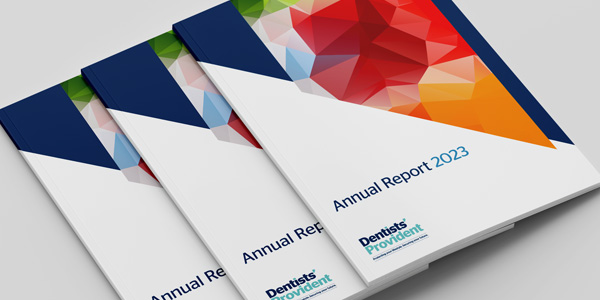
The unexpected health pandemic in spring this year was mind blowing and shocking for us all, coming out of a mild winter with environmental protests and in the aftermath of Brexit conversations, coronavirus was beyond anything we could have reasonably predicted. An international pandemic of this scale and this nature can truly be classed as an ‘unprecedented event’ and such a shock can have an impact on our mental health.
Introduction
A study conducted by researchers from the University of Sheffield and Ulster University found that on Tuesday 24 March, the day after the Prime Minister told the British public to stay at home, 38% of study participants reported significant depression and 36% anxiety. This compared with 16% and 17% respectively the day before the announcement. What’s more, in April The Lancet announced that 42 researchers from around the world, including a professor from the University of Bristol, would form the International Covid-19 Suicide Prevention Research Collaboration, due to the international concerns about the increase in mental health issues.
Mental health issues
For some people the isolation of feeling confined to their home had a severe impact on their mental health - too much worry, stress or even boredom can have an effect, and if not recognised and dealt with, could see you suffering way beyond the time a vaccine is found for COVID-19. And for many of us it wasn’t just the lockdown that caused stress, it was the worry of going back to our previous lives; stressful or crowded commutes and for all principals the financial pressure of running a business or potentially having to close the practice because of a COVID case, for example, all added to the pressure. And away from the world of work are the responsibilities of families, our health and that of our loved ones, the expectations of a social life with friends and an exercise regime to fit in. Basically, our lives being so full they feel overwhelming, and the more the ‘pre-virus’ world becomes unreal, the more we have to start from scratch to create a ‘new normal’.
Katherine May, author of the book ‘How I learned to flourish when life became frozen’ wrote in The Observer in April this year:
“This moment of mass confinement sees many of us grappling with a sudden sense of irrelevance, of being restrained from succeeding. We are urged to think of the bigger picture, and we do, but that does nothing to soothe the sense that our life’s work – the sum total of our ambition – is now considered petty… In less interesting times, we will meet acquaintances on the street and tell each other how busy we are, what a rush we’re in, how fast life is. In fallow periods, time opens up, and we read it as an insult. The outside world does not require us. We are surplus stock, just another human body… But there is unpicking to be done here, because the pace at which we live is so often destructive. Being busy makes us skim over life like a stone on still water. In quieter times, we can feel the presence of all the things we miss in our hurry.”
Reflecting on a simpler life
For some, the lockdown provided positive effects on their mental health. Once we got into the routine and flow, it gave many of us a chance to step back from our daily grind and find some peace and tranquillity. Not feeling guilty about savouring a quiet moment of contemplation, listening to the birds sing, stopping and feeling the warmth of the sun, going for a walk in an unexplored area locally or spending quality time with your nearest and dearest. Basically, a life less crowded with pre-lockdown responsibilities but focussing instead on simple pleasures - each day thinking only about what you could achieve, what you would eat, what exercise you could do and joining in with the camaraderie of the weekly clap.
The dental profession
For any dental professional, the knowledge of not being able to care for your patients, often whom you have long-term relationships with, was deeply unsettling. Added to this having to try to give online consultations with the implications and long-term harm of DIY dentistry and not even knowing if the business will ride the storm. Taken together all this can be very stressful indeed. In a recent Dental Defence Union (DDU) survey 68% of dental professionals think their stress and anxiety has worsened since the pandemic began, with around half feeling that they couldn’t do their jobs properly.
Moving on to a ‘new normal’ is even harder when there is limited PPE for dental professionals, social distancing is needed in practices and additional government guidelines to follow. The BDA, for example, has a detailed FAQ page that is updated regularly, as well as a live updates page. These can be useful resources as a one stop shop to keep you up to date on changes with what treatments are permitted, news on regional toolkits and a summary of the governments’ changing guidelines on the way you should now work.
For England, and there is some variation for Wales, Northern Ireland and Scotland, the Chief Dental Officer has published Standard Operating Procedures to cover a phased return for dental practices.
From 15 June this year, dental practices were tasked to ensure that staff always wear a surgical mask when not in PPE, that staff should self-isolate for 14 days if they’ve been in contact with someone COVID-19 positive and that practices should follow NHS Test and Trace requirements. From 20 July, all practices were given the green light for face-to-face contact as required, but still with certain restrictions, so it’s important to ensure things don’t become even more stressful for you when trying to follow guidelines to protect your patients and teams.
Getting help
Mind, the UK national mental health charity, has worked for over 60 years to improve the lives of those who experience mental health problems. They provide specific advice online on how to deal with the personal repercussions of the COVID-19 pandemic, from ways to connect with others and stimulate your mind, to how to relax and ways to view the news in a more pragmatic way.
BDA president Roz McMullan has meanwhile been working to support the mental wellbeing of frontline staff during the crisis, and in a blog in June discussed the level of stress dentists are under and suggested three strategies for coping: not ignoring the signs of stress, empowerment through supporting colleagues and considering what information you consume. She was also the lead in a BDA event in February this year, that gathered key stakeholders in UK dentistry to see how they could collaborate on improving the services and support for the mental health and wellbeing of dentists, as it has always been an important consideration, even before the pandemic hit.
Currently, BDA members can access counselling services and a 24-hour confidential helpline, but any dental professionals can access the Dental Health Support Trust. There are also a number of closed online groups where dental professionals can join to support each other. Many Local Dental Council’s (LDCs) also offer Practitioner Advice and Support Schemes (PASS) in a number of areas and hope to expand around the country. There is also the Dental Health Support Programme (DHSP) providing mental health and addictive disorder support. In England, dentists recently gained access to the NHS Practitioner Health Programme (PHP) and in Northern Ireland similar support is available through Inspire. Many indemnity organisations also provide counselling services and courses, so there is support at every turn if you look for it.
Bear in mind that the GDC does expect dental professionals to look after their own health in the interests of providing safe care for patients. Standard 9.2 reminds dental professionals that you may not be best placed to identify or assess your own health concerns.
What now?
We have already learnt new ways to communicate in our personal and professional lives, whether it is video consultations or talking to a neighbour - with a two-metre gap of course! And if the personal, professional or financial sacrifices that we have made to protect the society we live in don’t lead to some lasting improvements from an environmental or societal point of view, then it is a sad reflection on our inability to adapt and find positives despite unwanted change. It has given leaders and individuals a chance to see real opportunities for positive change, which could help us all have a more fulfilled life, understanding a bit better how to look after our mental health and that of others.
References available on request.
This article is intended for general information only, it is not designed to provide financial, health or other advice, nor is it intended to make any recommendations regarding the suitability of any plans for any particular individual. Nothing in this article constitutes an invitation, inducement or offer to subscribe for membership or additional benefits of Dentists’ Provident.
No responsibility or liability is assumed by Dentists’ Provident or any copyright owner for any injury or damage to persons or property as a consequence of the reading, use or interpretation of its published content. Whilst every effort is made to ensure accuracy, Dentists’ Provident, the authors, Editors and copyright owners cannot be held responsible for published errors.
Dentists’ Provident exercises editorial control only over material published and/or produced by it. No responsibility or liability is assumed by Dentists’ Provident for any articles produced or reproduced in third party publications and/or websites.
The views or opinions expressed do not necessarily reflect views of Dentists’ Provident or copyright owners. Inclusion of any advertising material does not constitute a guarantee or endorsement of any products or services or the claims made by any manufacturer.
If you have any questions, please contact our member services consultants by emailing press@dentistsprovident.co.uk or calling 020 7400 5710.
If you have any questions, please contact our member services consultants by emailing
memberservices@dentistsprovident.co.uk or calling 020 7400 5710.

Our 2024 Annual General Meeting will be held at 91-94 Saffron Hill, London, EC1N 8QP on Friday 24th Ma…
Read more
The 2023 annual report from Dentists’ Provident, a leading income protection provider for dental profe…
Read more
Our next exhibition is the British Dental Conference & Dentistry Show in May, where we look forward to meeting anyone interested in becoming a member or members wanting to discuss their plans.